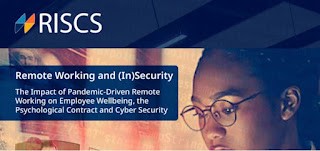Post-PhD thoughts on the Cyber Security field: Amy Ertan, 2017 CDT Cohort, now Cyber and Hybrid Policy Officer at NATO HQ in Brussels.
It has been just over a year since I successfully completed my viva – a milestone that initially felt both terrifying and insurmountable when I first joined the CDT. Now, I have the privilege of reflecting on my PhD journey and how its opportunities have shaped my present. I also wish to inspire curious students to embrace the full potential of the CDT and similar programs.
When I first came across the CDT application form, I initially envisioned transforming from a disillusioned city worker into a technical cyber security wizard, focusing on governance or incident response – as those were the only cyber security functions I was familiar with at the time. Very quickly, the CDT taught me that cyber security encompasses a vast and comprehensive range of approaches, offering me a holistic perspective on the field. Supported by the CDT, I engaged with exciting research and practitioner communities to learn about security governance, feminist and critical approaches, geography, the philosophy of information, and war studies.
The CDT provided an
inclusive platform through its first-year taught program, fostering a sense of
collaboration within our diverse cohort of computer science, mathematics,
geography, psychology, and military backgrounds. This collaborative spirit
sparked an explorative journey into interdisciplinary research, culminating in
my PhD on the (technical, operational, and strategic) challenges associated
with military AI innovation. I was fortunate to contribute to the emerging
field of cyber statecraft, collaborating with curious researchers exploring the
intersection of geopolitics, technology, and societal impact.
Seeking ideas and
inspiration, I participated in fellowships worldwide, spanning from Brazil to
the US, Lithuania, and Estonia. I took great satisfaction in my PhD research
(despite grappling with painful writer's block – there is no glamorising
that!). I also equally enjoyed and benefited from additional interdisciplinary
projects not necessarily related to my PhD, on topics including UK
cyber policy, cyber
exercising and human
aspects of cyber security. Undertaking these projects
gave me welcomed variety in my day-to-day research through the PhD journey,
while highlighting a few of the research topics that cyber security researchers
can tackle in the hope of informing understanding across communities and/or
encouraging informed decision-making by policymakers and senior leadership
audiences.
It’s also a pleasure to
reflect that my time undertaking academic research remains very relevant to my
work today now that I have moved into the fascinatingly complex world of
intergovernmental organisations. In this capacity, I have been able to publish
on evolving
cyber operations and capabilities in the context of the war
in Ukraine, challenges relating to lethal
autonomous weapons systems, and have two other chapters
accepted for print, both drawing on my PhD research. My ongoing engagement
with academia, with Royal Holloway colleagues, as well as through initiatives
like the Hague
Programme on International Security or
the European
Cyber Conflict Research Initiative, also
makes me better in my professional role. In shaping cyber defence approaches
for national and international security, policymakers benefit heavily from
academia's contributions, not only in technological research and development
but also for strategic and conceptual insights to navigate today's cyber threat
landscape.
I am passionate about promoting incoming talent into cyber security and frequently speak to students and aspiring early career professionals. One of my main 'sales-pitches' is that there is something in cyber security for everyone, regardless of their background or discipline. Keen problem-solvers will find themselves many fulfilling and varied career paths in this area, across academia, the public sector, and industry. By welcoming people with insights from various backgrounds, we will be better prepared to address many of the challenges we face in the field.


Great information, thank you for sharing with us.
ReplyDeleteBest Cybersecurity Services.